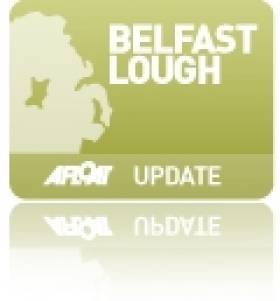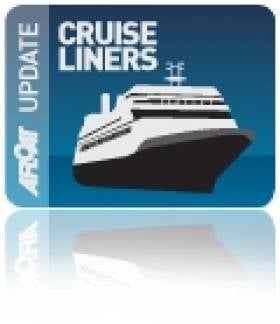Displaying items by tag: Belfast Visitor & Convention Bureau (BVCB)
Belfast’s Record-Breaking Cruise Boost
#BelfastCruiseCalls – The 2013 season will bring a record 57 cruiseships and more than 100,000 visitors to Belfast Harbour, compared to last year when only 44 cruiseships docked with 75,000 passengers, writes Jehan Ashmore.
Tourists from all corners of the globe are to visit Northern Ireland, having booked cruises with leading operators, among them Princess Cruises, Holland America Line, Celebrity, MSC, Thomson, Fred Olsen Cruise Line and Saga Cruises. The first caller of the season is the ultra-luxury Hebridean Princess, when she is to make a port of call in April.
Last month, Cruise Critic UK, the leading source of cruise information on the web, named Belfast as 'Best UK Port of Call' in their Editors' Picks Awards 2012.
The continuing success of Belfast as a destination to an international cruise market has been built from the efforts of Cruise Belfast, a marketing initiative between Belfast Harbour and Belfast Visitor and Convention Bureau (BVCB).
Anne McMullan from BVCB said "Cruise travel globally is one of the fastest growing and highly competitive areas of tourism and the record-breaking cruise ship numbers arriving in Belfast are a testament to the city's tourism success and how far we have come".
Asides the new Titanic Belfast Centre, which has arguably done for the city what the Guggenheim did for Bilbao, the port acts as a 'gateway' to the rest of Northern Ireland, where attractions are within a short coach trip to the Giants Causeway, Mount Stewart and St Patrick's Country.
Cruiseship Boost for Belfast
#CRUISE LINERS-Belfast Harbour looks forward to another bumper year as cruise operators are to increase by 32% compared to last year, with 41 cruise ships bringing almost 75,000 visitors to the port.
The following major operators are to visit: Cruise & Maritime Voyages, Fred Olsen Cruise Lines, Holland America Line, Princess Cruises and Saga Cruise and others will dock from far flung destinations.
At over 1km long, Stormont Wharf, will again be the main berth for cruiseships in particular the ability to accommodate an increasing trend in larger class vessels touring the Irish Sea. The wharf was extended in recent years at a cost of £10m and is the longest deepwater quay in Ireland.
To promote Belfast Harbour as a cruiseship destination, the port and the Belfast Visitor and Convention Bureau (BVCB) set up the Cruise Belfast Initiative to market the location internationally.
For further information visit www.cruise-belfast.co.uk and to view the seasons schedule of cruise callers click HERE.

























































